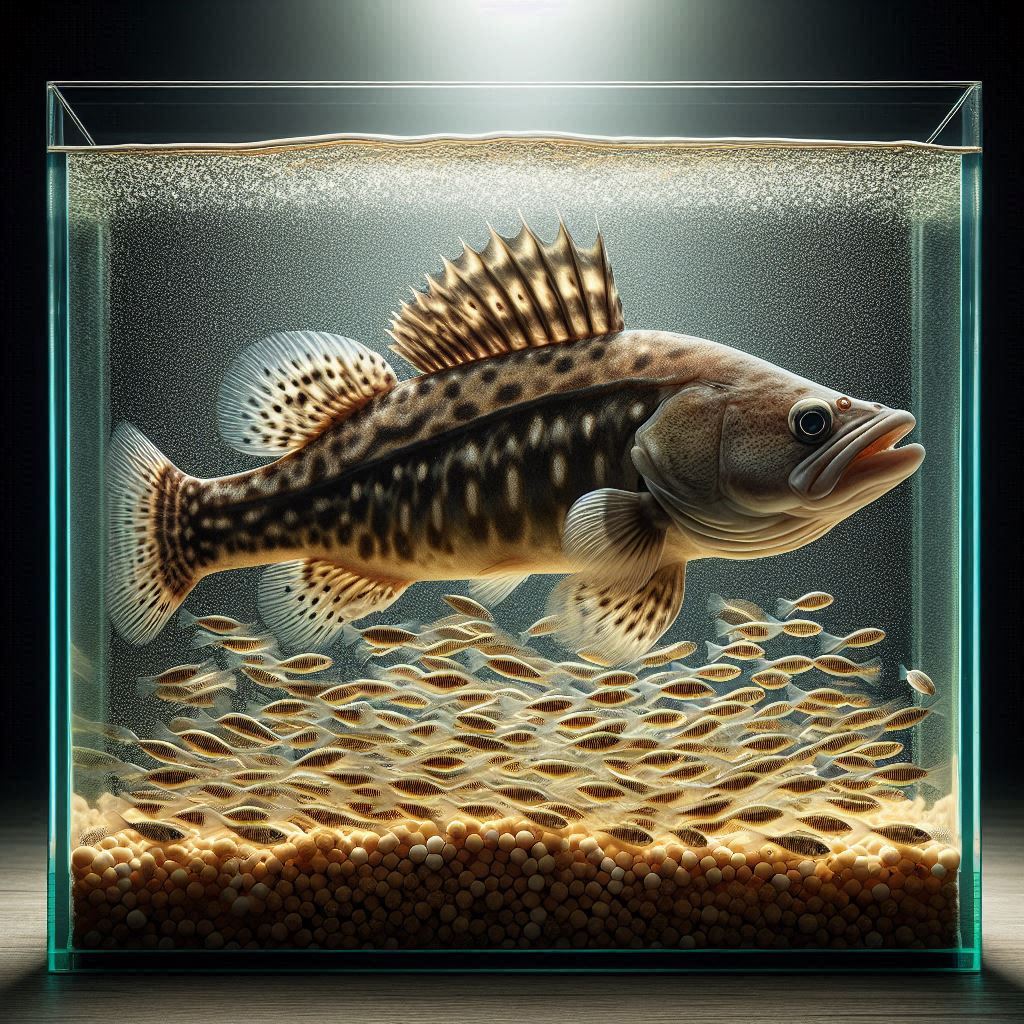ntroduction
Have you ever heard of the freshwater wolf fish? This intriguing creature, also known as Hoplias malabaricus, is a fascinating fish species that inhabits the freshwater rivers and lakes of South America. In this article, we will dive deep into the secrets of its habitat, behavior, and care. Whether you are a passionate fish enthusiast or someone considering adding a unique fish to your aquarium, this guide will provide you with all the information you need to know about the majestic freshwater wolf fish.
Habitat: A Home in the Waters
The freshwater wolf fish is native to the Amazon River basin and various other river systems in South America. It thrives in warm, tropical environments and can be found in rivers, lakes, and flooded forests. These fish are highly adaptable and can survive in a range of water conditions, including both clear and murky waters. They prefer areas with plenty of hiding spots, such as submerged logs, vegetation, and rocky structures.
Behavior: A Predator in Action
The behavior of the freshwater wolf fish is truly captivating. These fish are voracious predators that primarily feed on smaller fish, crustaceans, and even small mammals that venture too close to the water’s edge. With a set of sharp teeth and a powerful jaw, they are well-equipped to capture and devour their prey. In the wild, freshwater wolf fish are known for their aggressive nature and territorial behavior. They are solitary creatures that prefer to hunt alone, lurking in the shadows and ambushing their unsuspecting victims.
Care: Providing the Ideal Environment
If you’re considering keeping a freshwater wolf fish as a pet, it’s essential to provide them with a suitable environment. A spacious aquarium with a minimum capacity of 100 gallons is recommended to accommodate their size and territorial nature. These fish can grow up to 30 inches in length, so it’s crucial to offer them ample swimming space. The aquarium should be equipped with hiding spots, such as caves or PVC pipes, to mimic their natural habitat.
Maintaining water quality is of utmost importance when caring for freshwater wolf fish. They prefer slightly acidic to neutral water with a pH range of 6.5 to 7.5. It’s crucial to monitor the water parameters regularly and perform routine water changes to ensure optimal conditions. Additionally, a powerful filtration system is necessary to keep the water clean and free from debris.
Feeding: Satisfying their Carnivorous Appetite
As carnivorous predators, freshwater wolf fish require a meaty diet to thrive. Their diet should primarily consist of live or frozen foods, such as small fish, shrimp, and crickets. It’s important to offer a variety of food to ensure they receive a balanced diet. Feeding them once or twice a day is usually sufficient, but be mindful not to overfeed, as it can lead to obesity and other health issues.
Breeding: A Challenging Endeavor
Breeding freshwater wolf fish in captivity can be quite challenging. These fish are known for their aggressive behavior, especially during the breeding season. To increase the chances of successful breeding, it’s recommended to provide a separate breeding tank with suitable spawning conditions. The water temperature should be raised to around 82°F, and the lighting should be dimmed to simulate the natural conditions.

Common Challenges: Overcoming Obstacles
While keeping and caring for freshwater wolf fish can be a rewarding experience, there are a few challenges that owners may encounter. One common issue is their aggressive behavior towards tank mates. Due to their territorial nature, they may attack and injure other fish sharing the same aquarium. Therefore, it’s crucial to choose tank mates carefully and ensure they are compatible with the aggressive nature of the wolf fish.
Another challenge is their size and potential growth. As mentioned earlier, freshwater wolf fish can grow up to 30 inches in length, requiring a sizable aquarium. Keeping them in a small tank can lead to stress, stunted growth, and health problems. It’s essential to consider their adult size and provide adequate space right from the start.
Frequently Asked Questions
1. Can freshwater wolf fish live with other fish in the same aquarium?
Unfortunately, due to their aggressive nature, it’s not recommended to keep freshwater wolf fish with other fish species. They are best kept alone or with species that can tolerate their aggressive behavior.
2. Are freshwater wolf fish suitable for beginner fishkeepers?
Freshwater wolf fish are not recommended for beginners. They require specific care and a deep understanding of their behavior and needs. It’s best to gain experience with other fish species before considering them as pets.
3. Can freshwater wolf fish be kept in a community tank?
No, freshwater wolf fish should not be kept in a community tank. They are highly territorial and can harm or even kill other fish in the same aquarium.
4. Do freshwater wolf fish require any special lighting in their aquarium?
While they don’t have specific lighting requirements, it’s advisable to provide dim lighting in the aquarium to mimic their natural habitat and reduce stress.
5. Can freshwater wolf fish be trained to eat prepared foods?
It can be challenging to train freshwater wolf fish to eat prepared foods. They have a strong preference for live or frozen foods. However, some individuals may eventually accept pellets or other prepared foods with patience and persistence.
Conclusion
The freshwater wolf fish is undoubtedly a captivating species, with its unique habitat, predatory behavior, and specific care requirements. If you’re an experienced fish enthusiast looking for a fascinating addition to your aquarium, the freshwater wolf fish might be the perfect choice. However, it’s crucial to provide them with a suitable environment, a proper diet, and understand their aggressive nature. By following the guidelines outlined in this article, you can embark on an exciting journey of caring for these majestic creatures.




